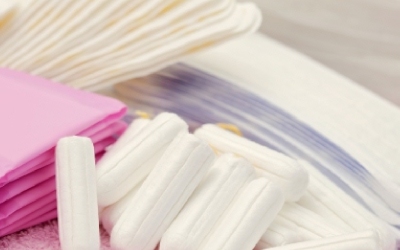Long and Heavy Periods? You May Have Fibroids
When that time of the month comes around, it affects different women’s wellbeing in different ways. You may find yourself on the sofa with a hot water bottle for three days, throwing plates at the wall or, if you’re really lucky and annoying, with no symptoms at all. However, if you do have very long and heavy periods, it could be a symptom of something else that’s affecting your sexual health.
Fibroids are a condition which affects about one in four British women in a lifetime. In women of child bearing age, fibroids are the most common tumour, although it’s important to stress that they aren’t cancerous. Fibroids are fed by your oestrogen hormones, and so grow from the muscle wall of your womb. This condition is the single biggest reason for hysterectomy; and the reason why 75,000 women a year are admitted to English NHS hospitals.
When it comes to symptoms, about half of women who have fibroids don’t experience any from fibroids. The other half, on the other hand, commonly experience long and/or heavy periods, which, in turn, can lead to anaemia and the tiredness, breathlessness and dizziness this can bring. Sometimes your period can be so bad that, for several days a month, you have to completely put your life on hold. Other wellness symptoms of fibroids include stomach pain, bloating, painful periods, pain on making love and even recurrent miscarriage or infertility.
There are different treatments for fibroids but the severity of your symptoms and your priorities will determine which the best course of action for you is. Hormone treatments such as the combined oral contraceptive pill (‘the pill’) and a hormone coil called the Mirena are effective at reducing heavy bleeding, but if you want to get pregnant this is clearly not an option for you. You can take other tablets during your period to reduce heavy bleeding, but if you have large fibroids (more than 3cm in size) these may not work as well.
Surgically, NICE (the National Institute for Clinical Excellence) recommends several procedures for women with larger fibroids before you resort to a hysterectomy. You can have it removed (about 2-3% of them a year will grow back) or have the blood supply to the fibroid cut off so it ‘dies’ and shrinks. However, these are complex and risky procedures, which may still require your surgeon to perform a hysterectomy while you’re under the same anaesthetic. Consult your doctor for more information.


Comments are closed.